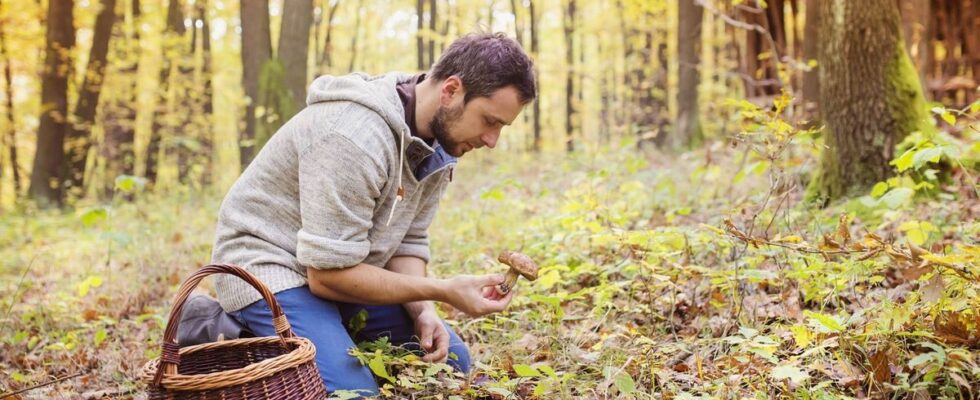Published on
updated on
Reading 2 min.
in collaboration with
Dr Gérald Kierzek (Medical Director)
Autumn is the ideal time for picking mushrooms. But faced with the increase in poisonings, the Rhône-Alpes Regional Health Agency (ARS) is issuing an alert.
Faced with the increase in cases of mushroom poisoning, health authorities are sounding the alert. Indeed, in Auvergne Rhône-Alpes, 150 cases were recorded between August 1 and October 17, including one fatality. Same thing in New Aquitaine, where nearly 200 cases have been recorded, with one death, again.
More than 400 cases of mushroom poisoning in France
In total, the National Agency for Food, Environmental and Occupational Health Safety (ANSES) recorded more than 400 cases of mushroom poisoning in mainland France at the beginning of October.
This alert, launched by the Auvergne-Rhône-Alpes Regional Health Agency (ARS) therefore comes “following the reporting of several serious cases by teams from the Lyon poison control center since the beginning of October“.
What are the symptoms reported by the poison control center?
According to the poison control center, patients who fell ill following the consumption of mushrooms collected in the wild presented “behavioral problems, digestive problems, or even kidney failure which can become chronic and require dialysis or a graft“.
Certain species of mushrooms are responsible for this situation. “Amanita phalloides or some other amanitas, some lepiotes like the Josserand’s Lepiote or the pink-brown Lepiote, or the Margined Galley” in particular, because all “may be confused with edible specimens” explains Nathalie Paret, doctor at the Lyon poison control center in the columns of Progressthe Lyon regional daily.
What to do to avoid any risk with mushrooms?
Questioned, Dr. Gérald Kierzek, emergency physician and medical director of Doctissimo, recalls the correct procedure to follow with mushrooms. To do this, you must:
- Don’t take any risks: you should only eat the mushrooms you know. If you have the slightest doubt, you should refrain or show the mushroom in question to a knowledgeable pharmacist or a mycologist;
- Only collect mushrooms that you know perfectly: some highly toxic poisonous mushrooms closely resemble edible species;
- At the slightest doubt on the condition or identification of one of the mushrooms harvested, do not consume the harvest before having it checked by a specialist in the field (pharmacists or mycology associations and societies in your region can be consulted ) ;
- Collect only specimens in good condition and take the entire mushroom (stem and cap), to allow identification;
- Do not pick near polluted sites (roadsides, industrial areas, landfills) because fungi concentrate pollutants;
- Place the mushrooms separatelyin a crate or cardboard but never in a plastic bag which accelerates rotting;
- Separate the harvested mushroomsby species. A poisonous mushroom can contaminate others;
- Wash your hands thoroughly after harvestingstore the mushrooms separately and in good condition in the refrigerator, and consume them within two days maximum after picking;
- Consume mushrooms in reasonable quantities after sufficient cooking and never consume them raw.
